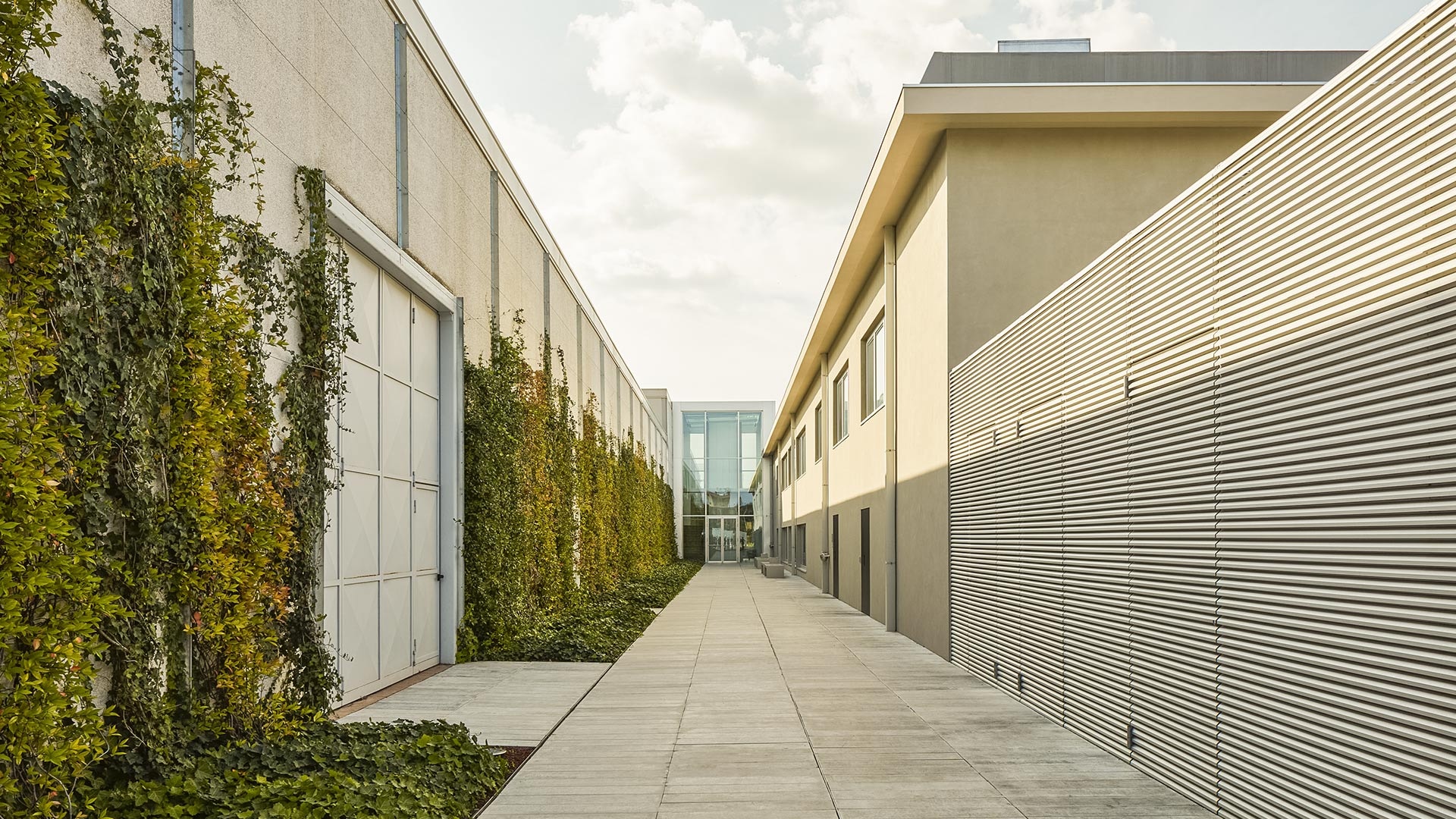HIGHLIGHTS
Purpose and Values
results for ""


Contaminations, transformations and new creations: the sites selected by the Prada Group - either historic buildings, recovered industrial sites or cutting-edge constructions - represent an example of a corporate philosophy that perceived the workplace as a space where history, culture, nature and respect for people combine generating architectural solution with a strong identity.
The architecture of the factories embodies the desire to integrate project and nature; stores are the highest expression of the identity of the brands and of the incessant research of innovative solutions.
The Prada Group’s headquarters are spaces where eclecticism of ideas transforms into activities.
Buildings that preserve people’s, creativity’s and manufacturing stories within their walls - as the offices of via Bergamo in Milan, a flexible laboratory, aesthetically essential and functional, where daily work flows relentlessly; the Group industrial headquarters in Valvigna, near Arezzo in Tuscany, where architecture meets nature harmoniously; the iconic Church’s factory in Northampton, an historical building where the traditional British handmade shoes are assembled.








Preservation of the territory, recovery of existing structures and mitigation of architecture impact on landscape are the choices that guided the industrial development of the Group throughout the years. This has been progressively accompanied by a path geared towards the energy efficiency optimization of the structures and an increasing focus on green spaces. Goals that find their highest expression on the “garden factories” designed by architect Guido Canali for the Group seeking a subtle balance between human work and nature.
Industrial development
The Prada Group is focused on an intense industrial investment activity characterized by a long-term vision geared towards the technological development of the facilities and processes, the preservation of know-how acquired in over a century of history.
Within the framework of the development strategy of the Group, aimed to maintain and increase the more delicate and specific production processes, 2015 saw the introduction of an activity plan that led to the finalization of several projects of industrial upgrading, especially in Italy, with the goal of strengthening the control on the production cycle and improve environmental performances.
Furthermore, in 2017 the Group inaugurated a new logistic hub designed by Guido Canali in the province of Arezzo.
Distribution identity
The desire of offering society always different and new inspirations, leads the Group to examine new forms of expression, even in retail.
The Group conceives its stores as eclectic spaces where customers are offered a unique experience, while establishing a contact with the universe and the products of every brand.
The distribution network of the Group, which includes historic boutiques, experimental stores and more traditional retailers, is completed with a selection of dedicated spaces at department stores, e-commerce for each brand and e-tailers.
Stores as instruments of innovation
The Prada Group has collaborated with some of the most prestigious international architecture firms to develop innovative retail solutions.
These encounters give life to experimental concepts, developed simultaneously with tradition sales channels, to investigate the multiple universes that enhance the shopping experience. Not just spaces that celebrate the ceremony of sale and the service, but stages for communication and culture.
Unusual architectural structures, new display and lighting techniques, digital tools with cutting-edge functions are just some of the features of the Group’s concept stores.
As for the three Prada Epicenters in New York, Los Angeles and Tokyo – buildings that reinvent the shopping experience introducing an important outpost on urban territory-, or the Miu Miu boutique in Tokyo’s Aoyama district, conceived as an intimate and understated residence.
These projects are accompanied by traditional mono-brand stores with their continuously updated identities that, at times, find home in rehabilitated historic buildings, as the Miu Miu store in Bologna or the Prada spaces in Salzburg.






































































